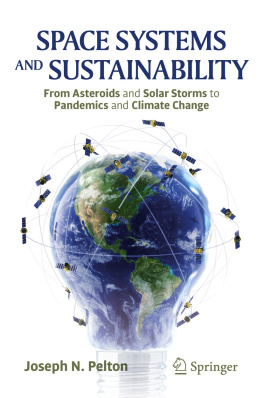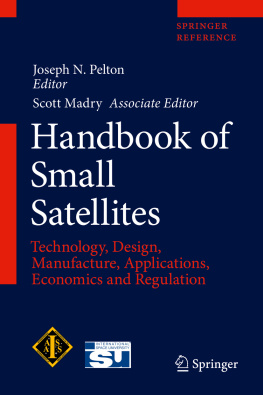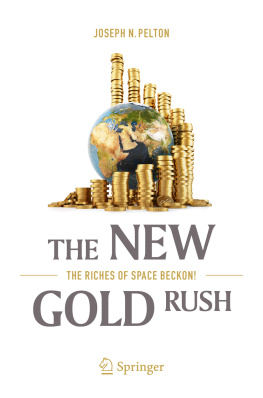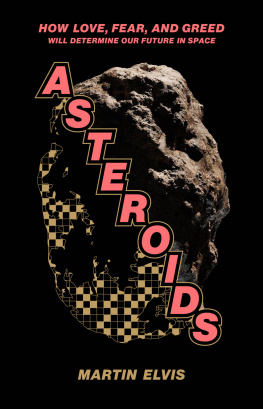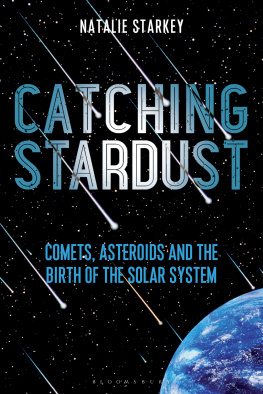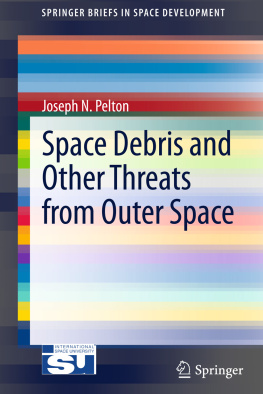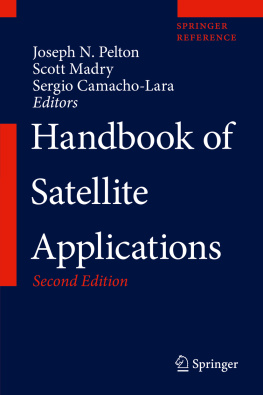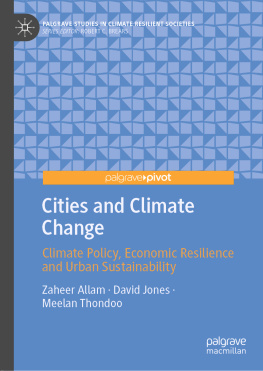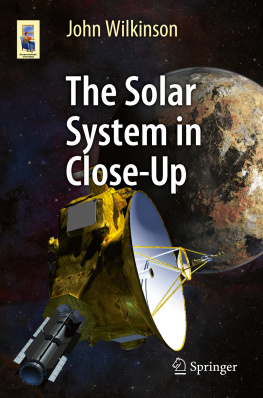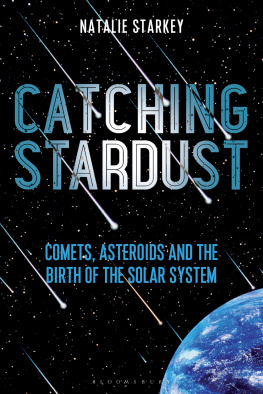Joseph N. Pelton - Space Systems and Sustainability : From Asteroids and Solar Storms to Pandemics and Climate Change
Here you can read online Joseph N. Pelton - Space Systems and Sustainability : From Asteroids and Solar Storms to Pandemics and Climate Change full text of the book (entire story) in english for free. Download pdf and epub, get meaning, cover and reviews about this ebook. year: 2021, genre: Romance novel. Description of the work, (preface) as well as reviews are available. Best literature library LitArk.com created for fans of good reading and offers a wide selection of genres:
Romance novel
Science fiction
Adventure
Detective
Science
History
Home and family
Prose
Art
Politics
Computer
Non-fiction
Religion
Business
Children
Humor
Choose a favorite category and find really read worthwhile books. Enjoy immersion in the world of imagination, feel the emotions of the characters or learn something new for yourself, make an fascinating discovery.
- Book:Space Systems and Sustainability : From Asteroids and Solar Storms to Pandemics and Climate Change
- Author:
- Genre:
- Year:2021
- Rating:5 / 5
- Favourites:Add to favourites
- Your mark:
- 100
- 1
- 2
- 3
- 4
- 5
Space Systems and Sustainability : From Asteroids and Solar Storms to Pandemics and Climate Change: summary, description and annotation
We offer to read an annotation, description, summary or preface (depends on what the author of the book "Space Systems and Sustainability : From Asteroids and Solar Storms to Pandemics and Climate Change" wrote himself). If you haven't found the necessary information about the book — write in the comments, we will try to find it.
Joseph N. Pelton: author's other books
Who wrote Space Systems and Sustainability : From Asteroids and Solar Storms to Pandemics and Climate Change? Find out the surname, the name of the author of the book and a list of all author's works by series.
Space Systems and Sustainability : From Asteroids and Solar Storms to Pandemics and Climate Change — read online for free the complete book (whole text) full work
Below is the text of the book, divided by pages. System saving the place of the last page read, allows you to conveniently read the book "Space Systems and Sustainability : From Asteroids and Solar Storms to Pandemics and Climate Change" online for free, without having to search again every time where you left off. Put a bookmark, and you can go to the page where you finished reading at any time.
Font size:
Interval:
Bookmark:
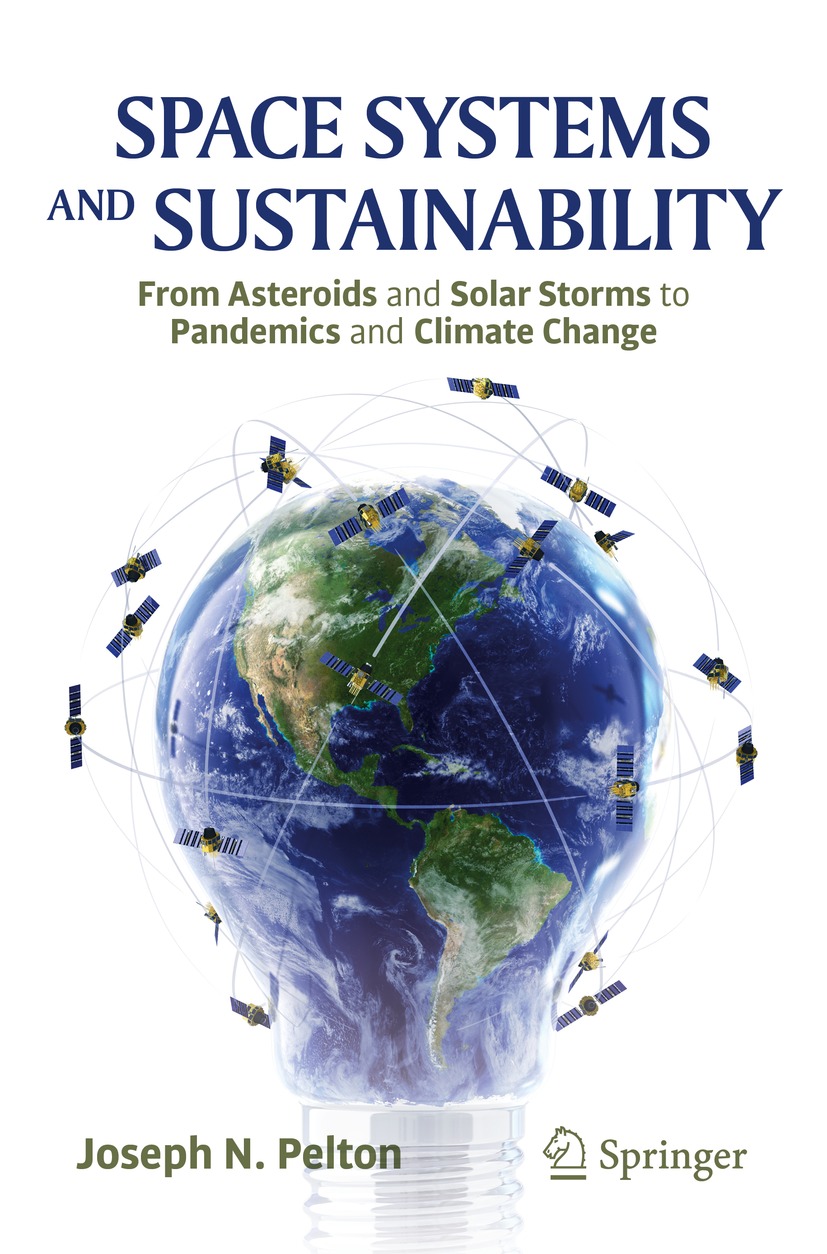

This Springer imprint is published by the registered company Springer Nature Switzerland AG
The registered company address is: Gewerbestrasse 11, 6330 Cham, Switzerland
This book is dedicated to those that believe the time has come for those on Earth to collaborate in new and more effective ways to save our cosmic home. It is about using space systems and technology to take better care of our ailing Spaceship Earth.
The main purpose of such a global collaboration is to save and sustain civilization from a growing number of existential crises. Some of these threats come from cosmic sources such as asteroids, comets, centaurs, solar storms, and orbital space debris. Then there are also the many and growing crises here on Earth. These include pandemics, natural disasters, global pollution, climate change, nuclear and biochemical weapons, nuclear waste, pathogens, overpopulation, and other hyperobject grand challenges discussed in this book.
I dedicate this book to the fledging initiative outlined in Chap. , namely the creation of a new international agreement that could ultimately lead to a global sustainability treaty. The goal is to create a unified effort to undertake planetary defense. We need such a global initiative in order to achieve the long-term survival of our species.
This book has been a true challenge because of the diverse areas of concern when it comes to long-term human survival in the so-called Anthropocene epoch, which others call the Holocene epoch. We are in a geological time in which human activity is the prime shaper of change to planet Earth. This book thus needed to call upon a wide range of expertise to help readers understand the various crises that the modern world now faces.
I must first start with my thanks to my friend, colleague, and editor, Peter Marshall in England, with whom I have worked on nearly ten different book projects. I truly appreciate his help to format and improve the coherence of this text. I also wish to thank my friend and colleague Dr. Donald Daniel for his expertise in disarmament, nuclear weapons, and nuclear waste materials. He also helped me understand the particular problems with the monitoring of biological weapons. Likewise, my colleague and friend Prof. Scott Madry helped with understanding some of the latest breakthroughs in hyper-spectral sensing and data analytics that are zooming ahead at warp speed.
A special thank you must go to Prof. Ram S. Jakhu, Acting Director of the Institute of Air and Space Law, McGill University, and his colleague, Dr. Karin Vazhapully. They collaborated with me in the writing of Chap. , which addresses the creation of a global sustainability treaty. This new international agreement would facilitate the nations of the world to collaborate and identify the worlds greatest existential crises, and then to seek unified ways to mitigate these risks.
There are many others from around the world and in many different fields that have assisted in different ways. My sincere appreciation is extended to President Juan de Daumau, Gary Martin, Prof. Su-Yin Tan, and Prof. Chris Welch, all of the International Space University; Chris Johnson of the Secure World Foundation; Lord Martin Rees, Royal Astronomer of the UK; Matteo Madi of Sirin Orbital Sciences; Olga Sokolova, risk analyst from Zurich, Switzerland; Prof. Steven Freeland of Western Sydney University of Australia; Dr. James Green, Chief Scientist at NASA; Prof. Giovanni Fazio, Harvard University; Michael Potter, Paradigm Inc.; Prof. Madhu Thangavelu , Viterbi School of Engineering, University of Southern California; Ranjana Kaul, space lawyer from New Delhi, India; Dr. Carlos Niderstrasser; Dr. Darren McKnight of Centauri Corporation; Tommaso Sgobba, Executive Director of the IAASS; and Michelle Hanlon, co-founder of For All Moonkind.

A prolific author, Dr. Pelton has now published over 50 books and over 400 articles, encyclopedia entries, op-ed pieces, and other research publications during his career. He has been speaker on national media in the USA (PBS New Hour, Public Radios All Things Considered, ABC, and CBS) and internationally on BBC, CBC, and FR-3. He has spoken and testified before Congress and the United Nations, and delivered talks in over 40 countries around the world. His honors include the Sir Arthur Clarke International Achievement Award of the British Interplanetary Society; the Arthur C. Clarke Foundation Award; the ICA Educators award; the ISCe Excellence in Education Award; and being elected to the International Academy of Astronautics. Most recently, in 2017, he won the Da Vinci Award of the International Association for the Advancement of Space Safety and the Guardian Award of the Lifeboat Foundation.
Font size:
Interval:
Bookmark:
Similar books «Space Systems and Sustainability : From Asteroids and Solar Storms to Pandemics and Climate Change»
Look at similar books to Space Systems and Sustainability : From Asteroids and Solar Storms to Pandemics and Climate Change. We have selected literature similar in name and meaning in the hope of providing readers with more options to find new, interesting, not yet read works.
Discussion, reviews of the book Space Systems and Sustainability : From Asteroids and Solar Storms to Pandemics and Climate Change and just readers' own opinions. Leave your comments, write what you think about the work, its meaning or the main characters. Specify what exactly you liked and what you didn't like, and why you think so.

